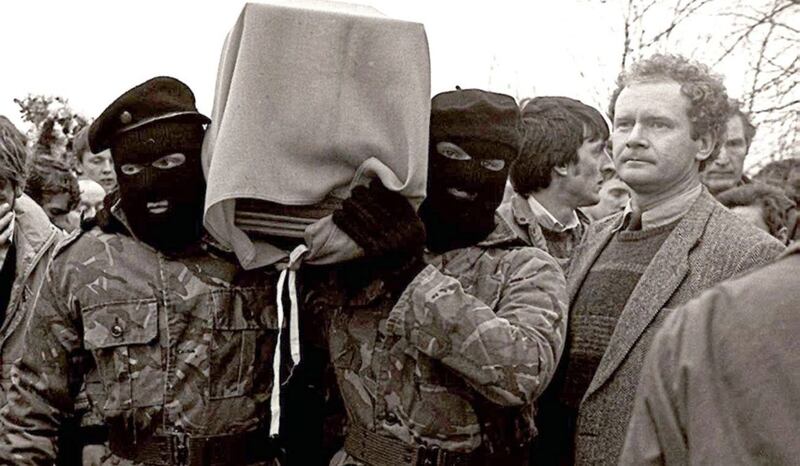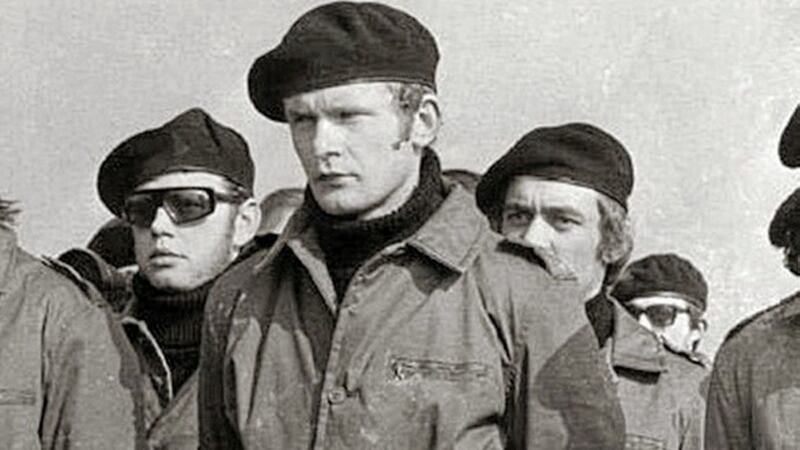IN the year or so before he died I had been trying to set up a long, lifetime-overview interview with Martin McGuinness.
This was our last private exchange of messages (from early January, after it became clear how ill he was): “You sounded and looked tired today. Look after yourself and put your health first. Sorry we’ll never get to do an interview. Best wishes, Alex.”
“Many thanks Alex, much appreciated. Don’t be so sure re interview!! Best wishes. Martin.”
I was keen to do the interview because, as a unionist, I wanted to know what made him tick.
I wanted to know why he ended up as a key player in the IRA. I wanted to know what made him decide to persuade his IRA colleagues - still armed and active at the time - to cut a deal with unionism, particularly the DUP.
I wanted to know what it was about unionism that made him so angry as a young man in the 1960s.
I wanted to know if he had those ‘waking in the night, bathed in the sweat of remorse’ moments.
I wanted to know if he believed - bearing in mind Sinn Féin was now in the same place as the SDLP - that he could have played a much more useful, influential role alongside John Hume rather than alongside the IRA Army Council.
All of those questions will remain unanswered: and that makes it much more difficult for me to reach any definitive conclusions about his legacy.
Those close to him will argue that his efforts - as both an IRA man and a politician - have ‘hugely increased’ the likelihood of Irish unity in the next couple of decades.
Many unionists, on the other hand, will argue that the smear of blood and whiff of Semtex made - and continue to make - it much more difficult for them to even consider the potential socio/economic merits of unity.

And he took so much to the grave with him.
I don’t know if he kept a diary, or if someone was working on an autobiography with him since he first joined the Executive in December 1999.
I don’t know if he was rock-solidly sincere in his professed desire to build a new relationship with unionists; or if the Good Friday Agreement and the Executive were merely strategic, convenient vehicles to pursue unity by other means.
That he got on extraordinarily well with Ian Paisley is undeniably true: as is the fact that Paisley was toppled because of that relationship and the DUP’s fear that it would do them electoral damage.
A few years ago I stated in a television interview that the relationship between the DUP and SF was ‘absolutely dreadful at a personal level’. An hour later Martin tweeted that I was wrong in my assessment.
But when he resigned as deputy first minister in January, he claimed that there was no respect from the DUP and that many of them didn’t even acknowledge him.
As I say, I can now never be entirely certain what motivated his seeming change of heart and strategy from the mid-1990s onwards. In other words, I cannot stand over the view that there was a genuine, demonstrable ‘Damascus moment’ which saw him change from ‘terrorist’ to ‘peacemaker’.
But what I can stand over is the fact that the force of his personality and the passion underlying his influence brought Sinn Fein, the IRA and the DUP to the same place at the same time.
Did unionists trust him? No. Will their view of him soften? No. Do they view him as a peacemaker? No. Did they ever want a deal which involved him? No.
As a unionist, and as a political observer, I don’t know every brick in the path that led McGuinness to Stormont: but I don’t deny that it changed the dynamics of politics here and gave us an unexpected chance to find another way of doing business together.
Yet surrounded, as we presently are, by institutional wreckage and naked contempt between the DUP and SF, it’s still much too early to say if his influence will outlive him.
The fact that he will divide opinion in death as much as he did in life suggests that he still had a journey to complete and many, many questions to answer.







